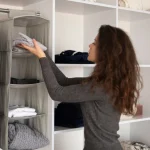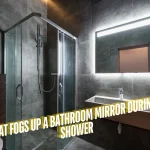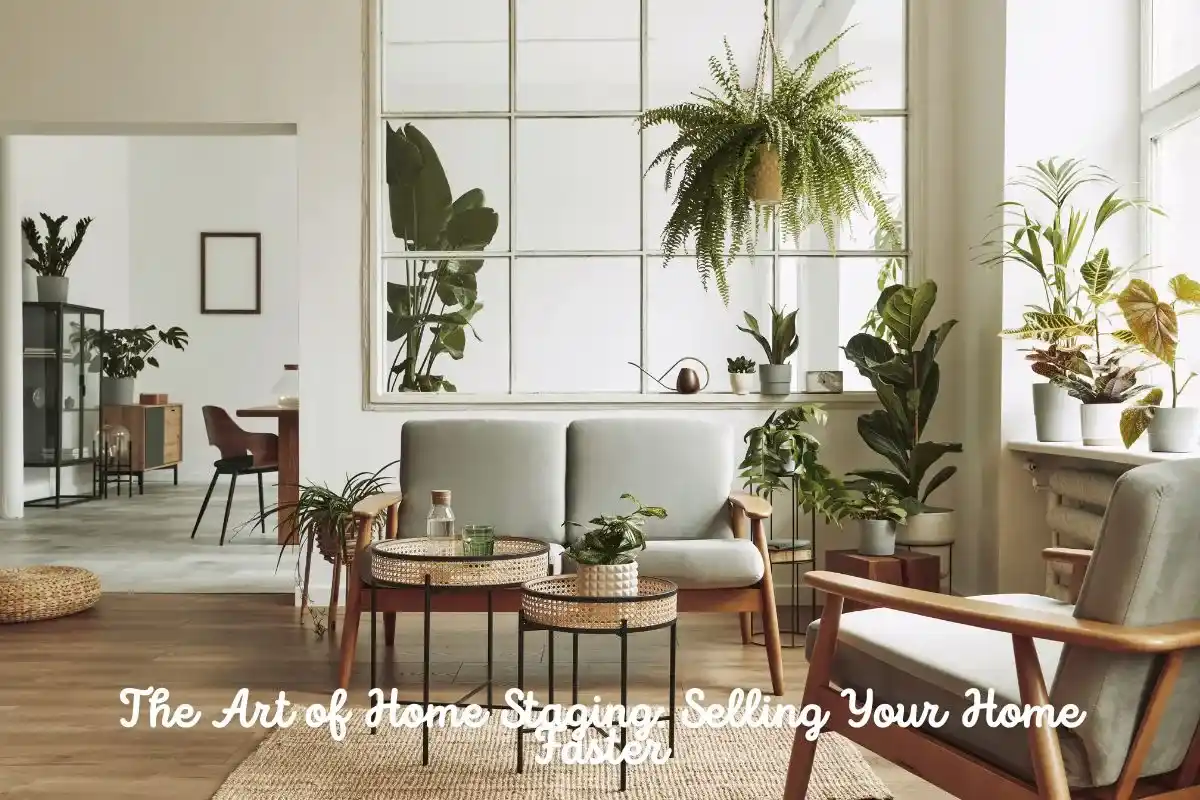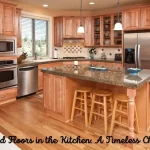Selling a home is one of the most significant financial decisions in a person’s life, and it can often feel overwhelming. As a first-time seller or someone looking to sell a home quickly and at the best price, you may have heard the term “home staging” thrown around. But what exactly does it mean, and how can it benefit you?
Home staging is the art of preparing a home for sale in a way that maximizes its appeal to potential buyers. The goal is not just to decorate but to create an environment that allows buyers to envision themselves living in the space. If done correctly, staging can help your home sell faster and at a higher price.
In this article, we’ll explore what home staging is, why it’s important, and how you can stage your home like a pro, all while offering you insights, expert advice, and a few personal anecdotes to help guide you through the process.
Table of Contents
ToggleWhat is Home Staging?
Home staging is the process of strategically arranging and decorating a home to highlight its best features, create an inviting atmosphere, and make it easier for potential buyers to see themselves living there. This goes beyond simple tidying up or decorating; it involves presenting the home in its best possible light.
Why Home Staging Matters
When you put your home on the market, you’re competing with other properties. Staging gives your home the competitive edge it needs to stand out. According to Barb Schwarz, the founder of the International Association of Home Staging Professionals (IASHP), “Home staging is not just about decorating; it’s about creating a space that resonates with potential buyers and evokes an emotional response.”
When buyers can visualize themselves in the space, they’re more likely to make an offer. In fact, according to the National Association of Realtors (NAR), staged homes sell 73% faster than unstaged homes. And it doesn’t stop there—home staging can also lead to a higher selling price. Homes that are staged can sell for 6-10% more than unstaged homes.
The Benefits of Home Staging
1. Faster Sales
One of the most significant benefits of home staging is that it helps sell your home faster. When a home looks inviting and well-kept, buyers are more likely to be drawn to it and envision themselves living there. In many cases, a staged home can sell within days, compared to months for a home that isn’t staged.
2. Higher Offers
A well-staged home can also result in higher offers. When buyers see the potential of a space and feel emotionally connected to it, they’re willing to pay a premium for it. Home staging emphasizes your home’s strengths, helping potential buyers see its true value.
3. Appealing to a Broader Market
When buyers walk into a home, they often struggle to picture how they would arrange their furniture, or whether the home will fit their lifestyle. Staging allows you to showcase the full potential of your home. It helps buyers see how the space can be used, even if it’s different from how you use it.
4. Helping Buyers Move Past Flaws
No home is perfect. Whether it’s outdated furniture, a quirky layout, or small rooms, staging can minimize these flaws. The goal of staging is to create a neutral and inviting environment where buyers feel comfortable, allowing them to overlook imperfections.
Expert Quotes on Home Staging
Several home staging experts agree on the importance of this process:
- Barb Schwarz, Founder of the International Association of Home Staging Professionals (IASHP), says, “Home staging is not just about decorating; it’s about creating a space that resonates with potential buyers and evokes an emotional response.”
- Karen Sirratt, a home staging expert, adds, “A well-staged home can sell faster and for a higher price. It’s an investment that pays off.”
- Meridith Baer, a celebrity interior designer, explains, “Staging is not about making your home look like a model home; it’s about highlighting its best features and creating a welcoming atmosphere.”
- Julie Potter, a home staging expert, states, “First impressions matter, and a well-staged home can make a lasting impression on potential buyers.”
- Ann Packard, another expert, shares, “Staging is the art of transforming a house into a home that buyers can envision themselves living in.”
- Sherry Chris, CEO of Better Homes and Gardens Real Estate, sums it up succinctly, “A staged home is a sold home. It’s that simple.”
How to Stage Your Home: Step-by-Step Guide
Now that we’ve established why home staging is essential, let’s dive into how you can stage your home effectively.
1. Declutter and Clean
The first step to staging your home is to clean and declutter. A clean, organized home instantly feels more inviting. Potential buyers will be distracted by clutter, which may prevent them from seeing your home’s full potential.
- Declutter each room: Remove unnecessary items from countertops, tables, and shelves.
- Deep clean: Ensure that all surfaces, floors, and windows are spotless. Don’t forget areas like baseboards, light fixtures, and the kitchen sink.
2. Neutralize Your Space
Personal items like family photos, memorabilia, and overly bright colors can make it harder for buyers to envision themselves in the space. Neutralizing your décor creates a blank canvas where buyers can project their vision.
- Paint in neutral tones: Soft whites, greys, and beiges are popular choices that make a room feel bigger and more inviting.
- Use neutral furniture: If your furniture is too bold or doesn’t fit the space, consider renting or borrowing pieces to create a more neutral and spacious look.
3. Maximize Natural Light
Natural light is a huge selling point. It makes a space feel airy, open, and bright. Ensure that your windows are clean, and remove heavy drapes or blinds that block light. Consider using sheer curtains or blinds that allow more sunlight to flood the space.
- Open all blinds and curtains during showings to let the light shine in.
- Use mirrors strategically: Mirrors can reflect light and make a room feel larger and brighter.
4. Focus on Key Rooms
While every room in your home is important, some rooms are more impactful than others when it comes to staging. These include the living room, kitchen, and master bedroom.
- Living Room: Arrange furniture to create a welcoming conversation area. Add fresh flowers or a bowl of fruit for a touch of color.
- Kitchen: Clear off countertops and organize cabinets. A clean kitchen gives the impression of more space.
- Master Bedroom: Create a tranquil and relaxing atmosphere by adding soft bedding, neutral colors, and minimal décor.
5. Add Welcoming Touches
A few thoughtful touches can make your home feel inviting. Here are some ideas:
- Fresh flowers: Add a vase of fresh flowers in the entryway or kitchen to create a welcoming atmosphere.
- Aromatic scents: Light a scented candle or bake cookies before a showing to make the home smell inviting.
- Soft textures: Throw pillows, cozy blankets, and rugs can soften the space and make it feel homey.
6. Consider Curb Appeal
First impressions count, and that starts with the exterior of your home. Ensure that your lawn is mowed, the driveway is clear, and the front door is clean. Simple landscaping, like fresh mulch or potted plants, can make a big difference in how buyers perceive your home.
- Paint or touch up the front door: A fresh coat of paint can make your entryway stand out.
- Add outdoor seating: A bench or pair of chairs on the front porch can make the space more inviting.
7. Hire a Professional Stager
If you’re unsure about how to stage your home or want to ensure that you get the best possible results, consider hiring a professional home stager. A pro can provide expert advice on how to highlight your home’s strengths and make it stand out in the market.
The Impact of Home Staging: Studies and Research
Numerous studies have shown the positive effects of home staging:
- National Association of Realtors (NAR) Profile of Home Staging: This annual report provides data showing that staged homes sell 73% faster and for a higher price than those that aren’t staged.
- Real Estate Staging Association (RESA): RESA conducts research showing that home staging is one of the most effective tools for selling a home faster and for more money.
- University Studies: Research from various universities has shown that home staging can positively influence a buyer’s perception and decision-making process, making them more likely to put in an offer.
Conclusion
Home staging is an art that can significantly impact how quickly and for how much your home sells. By presenting your home in its best light, you make it easier for buyers to envision themselves living there. From decluttering and neutralizing to adding personal touches and hiring a professional, staging your home can give you the competitive edge you need in a crowded market.
Whether you decide to stage your home yourself or hire an expert, remember that home staging is an investment in the sale of your home. As Sherry Chris, CEO of Better Homes and Gardens Real Estate, says, “A staged home is a sold home. It’s that simple.” So, take the time to stage your home and enjoy the rewards of a faster sale and higher offers.
Share via:
Related posts:
 Small Closet, Big Impact: Space-Saving Storage Solutions
Small Closet, Big Impact: Space-Saving Storage Solutions
 Emergency Housing Resources in Athens, AL
Emergency Housing Resources in Athens, AL
 How Far Is Albertville Al 4 Bed House for Rent
How Far Is Albertville Al 4 Bed House for Rent
 How Much Distance Between Houses in Weston Ct Zoning
How Much Distance Between Houses in Weston Ct Zoning
 How to Brighten the Display on Your KitchenAid KGRS807SSS00 Oven
How to Brighten the Display on Your KitchenAid KGRS807SSS00 Oven
 Why Bathroom Mirrors Fog Up & How to Prevent It
Why Bathroom Mirrors Fog Up & How to Prevent It
 Kahrs Flooring: A Perfect Blend of Beauty & Durability
Kahrs Flooring: A Perfect Blend of Beauty & Durability



